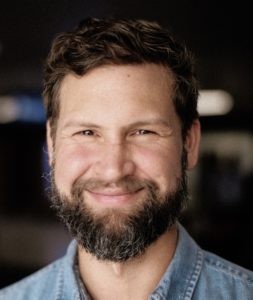 As the COVID-19 crisis continues to deepen by the hour, it is time for America’s religious leaders to lead. It is time to act. Specifically, it is time to suspend all religious public gatherings for the sake of our local communities. And to do so immediately.
As the COVID-19 crisis continues to deepen by the hour, it is time for America’s religious leaders to lead. It is time to act. Specifically, it is time to suspend all religious public gatherings for the sake of our local communities. And to do so immediately.
I am not saying in resignation that we are unable to serve one another, only that the ways we serve must change for at least a little while. In the Christian season of Lent, who could have imagined that we would be forced to give up each other? It feels like too much, this being pulled apart from communal gatherings at the exact time when people need spiritual comfort. But there are other considerations we must make as institutional leaders, driven by the deepest values of our traditions.
Our voluntary social distancing will encourage and support the larger response to this outbreak. Fewer people will be at risk of infection and spreading the virus to others if we suspend large public gatherings immediately – not next week when the threat has run even farther ahead of our efforts. Our nation’s health care system is at risk of collapse if we do not slow down the spread of infection now.
We say we love our neighbors. Now we must enter into a painful practice of social distancing to best live out that love.
In this heightened time of anxiety, our communities are looking for someone to speak with clarity. As faith leaders, we are in the best position to do so with wisdom and compassion. The country’s leading health and science officials are speaking in one voice, giving the same guidance, and we can amplify their message within our communities by taking decisive action.
“We say we love our neighbors. Now we must enter into a painful practice of social distancing to best live out that love.”
That guidance is simple, while also socially painful. We must practice frequent hand washing, disinfect surfaces regularly, limit touching our face and, where possible, create social distancing to reduce the speed and reach of infection. While some responsibilities and services, with their inherent social interactions, would be too destabilizing to completely eliminate, religious gatherings offer a place of focused impact when trying to limit the speed and reach of this new virus. We can help to ease the overburdening of our health care system by avoiding instances of mass exposure.
Social distancing is against our sacred nature, which is why we as leaders will have to make hard decisions like this for our people.
Suspending public gatherings is driven by deep love for our neighbors. Many of us are healthy and in lower risk categories than members of our faith communities and citizens in our towns and cities. Indeed, churches, synagogues, mosques and other religious centers are over-represented by the most vulnerable population, especially older adults with weakened immune systems and those with limited financial resources. For many senior adults, a religious gathering might be the most dangerous exposure of their entire week.
Simply put, suspending public gatherings protects the most vulnerable in our communities in responsible and effective ways. As leaders we must protect those in our care, even when being proactive and decisive creates its own uncertainty and anxiety.
In addition to suspending gatherings, our next course of action is to communicate and stay connected with our people by all means possible and with honest compassion. The national obsession with arguments in our common discourse has eroded our collective ability to speak calmly and with authority. Many of us are receiving mixed messages from media sources and public services. Much of this “news” is sensational in both directions because we are still addicted to political outrage.
Many of us, even our elected leaders, are afraid. But we need clarity and guidance in these strange and scary times. Religious leaders must reclaim our role as voices of compassion and sanity. No need to argue. Just speak with love and concern.
In addition to social media blasts that could get lost in the noise, share reliable, fact-based information and resources with your communities directly. (For example, our church, First Baptist, Pasadena, California, has created a “Coronavirus Readiness” web page with information and resources that will be updated regularly.) Start a phone tree and call people directly. Use official institutional channels and speak from your office. Mitigate the increased loneliness by spurring your people to dig deep and tighten bonds. Help your people find creative ways to thrive. Love your neighbor in whatever way you can, even when the loss of social gatherings will be painful.
These are troubled times, but our faith and our traditions have prepared us for this work. This is the time to believe our message. This is our occasion to enact it.
EDITOR’S NOTE: BNG is committed to providing our readers with timely and compelling news and commentary about ways Christians and churches are responding to the coronavirus pandemic. Look for the hashtag #intimeslikethese. You can also use this form to help us identify compelling stories of faith and ministry.
Related commentary:
Cody Sanders | Church and the coronavirus: practicing compassion and care even as we take precautions
Corey Fields | We’ve got plenty to be afraid of these days. So why does the Bible tell us not to fear?
Related news:
Coronavirus ripples turn to waves for faith-based groups
For missionaries, coronavirus creates ‘an interesting moment in plagues and pestilence’
